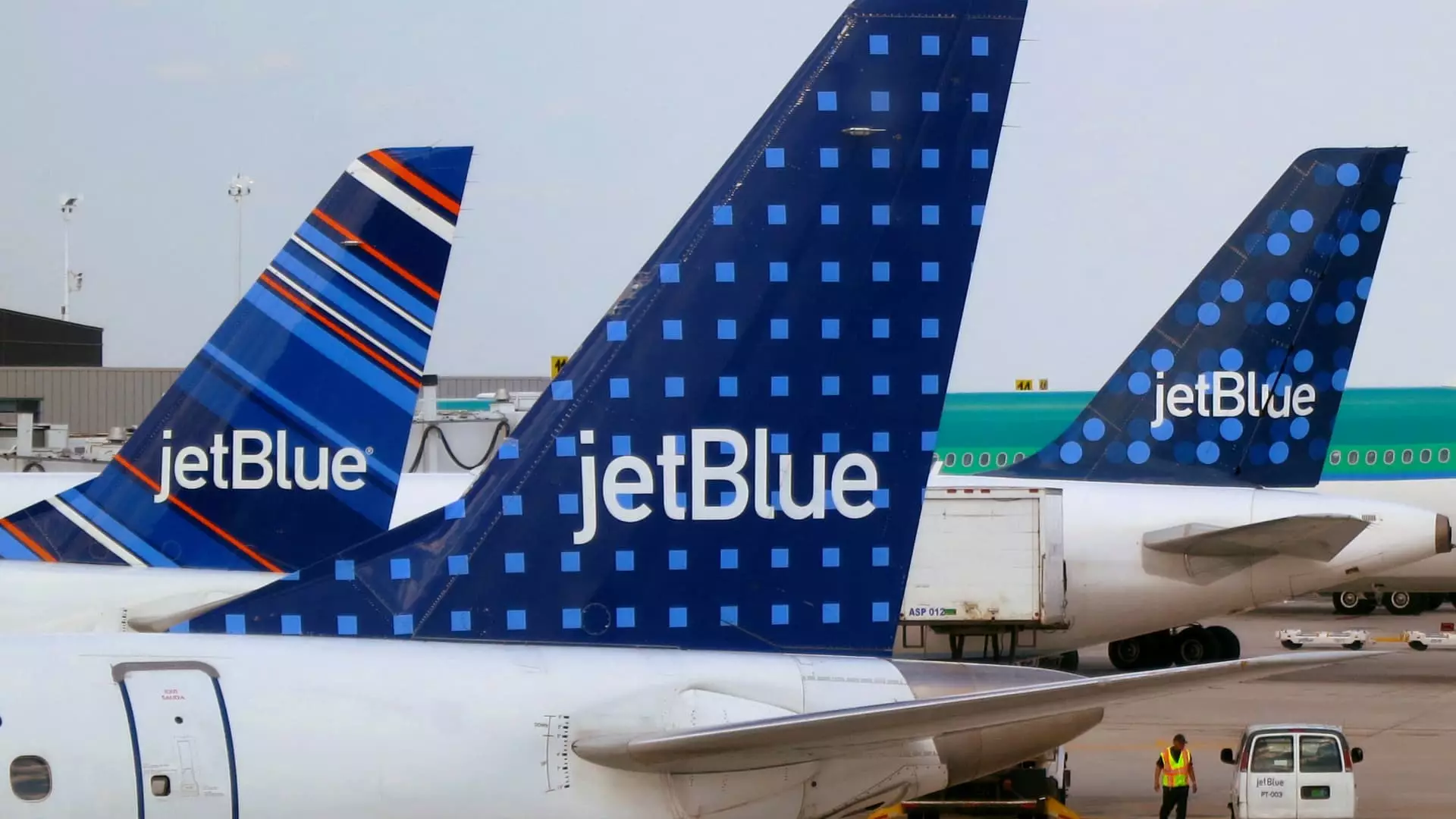In a historic move, the Department of Transportation (DOT) has imposed a $2 million fine on JetBlue Airways for what they describe as “chronically delayed flights.” This penalty marks a significant turning point in air travel regulation, setting a precedent that could influence future actions against airlines with poor performance records. According to the DOT, JetBlue operated various routes that collectively experienced delays exceeding 145 occurrences between June 2022 and November 2023. The affected routes include key connections between New York’s John F. Kennedy International Airport and the Raleigh-Durham International Airport, along with significant domestic routes throughout Florida and Connecticut.
The term “chronically delayed” is defined by the DOT as a flight that is operated at least ten times monthly while arriving over 30 minutes late more than half the time. This regulatory insight sheds light on the structural issues facing not only JetBlue but also the airline industry as a whole. With JetBlue reportedly responsible for over 70% of the delays on the scrutinized routes, the airline’s management has come under scrutiny for their failure to adapt schedules to more accurately reflect flight realities.
Transportation Secretary Pete Buttigieg emphasized the importance of realistic scheduling, declaring that the action against JetBlue sends a clear signal across the aviation sector. There is an overarching expectation that airlines must take responsibility for their operations. The spotlight on JetBlue is indicative of a larger trend where consumer frustration with delayed flights could compel the DOT to act against other airlines exhibiting similar patterns.
JetBlue’s response to the fine also opens a new dialogue about the shared responsibility for air travel reliability. The airline has been vocal about the necessity for improvements in air traffic management and staffing. Their statement highlights a central concern amongst major carriers: the industry’s performance is significantly tied to the effectiveness of the U.S. government’s air traffic control (ATC) systems. By calling for the modernization of ATC technology and addressing staffing shortages, JetBlue aligns itself with other major players in the industry, like Delta and United, in urging for government intervention.
This stance opens up a dialogue about whether airlines can justifiably place the blame for their operational shortcomings on external factors. While improved ATC protocols and adequate staffing are undeniably essential for smoother air travel, the question of accountability remains complex. How much should airlines be held responsible versus the government’s role in managing and enhancing the support systems that facilitate air travel?
Despite the scrutiny, it’s essential to recognize that JetBlue has been making strides in improving its performance metrics. According to recent reports, the airline ranked ninth out of ten U.S. carriers in terms of on-time arrivals from January to September 2024, with an impressive 71.3% of flights arriving on schedule. This is a notable improvement from 64.9% in the previous year, suggesting that JetBlue is aware of its performance issues and is actively working on enhancing its service.
Nonetheless, improvement in performance does not eliminate the impact of ongoing delays. The DOT’s decision to fine JetBlue and investigate other airlines’ scheduling practices sends a strong message: accountability does not merely hinge on seasonal fluctuations in performance but is also about consistent reliability across all levels of operation.
As the airline industry grapples with operational challenges and increasing consumer complaints, this fine against JetBlue could pave the way for more stringent regulations and criteria for acceptable performance standards. The existing framework of accountability may soon evolve, compelling airlines to not only enhance their scheduling practices but also ensure transparent communication with passengers.
The $2 million fine against JetBlue serves as both a cautionary tale and a critical turning point for the airline industry. As consumers demand more reliable services and the government intensifies scrutiny over operational standards, it remains to be seen how other carriers will adjust their practices to meet the evolving expectations. The success of these efforts will ultimately hinge on how effectively both the airlines and the government address the underlying issues affecting the aviation sector.

